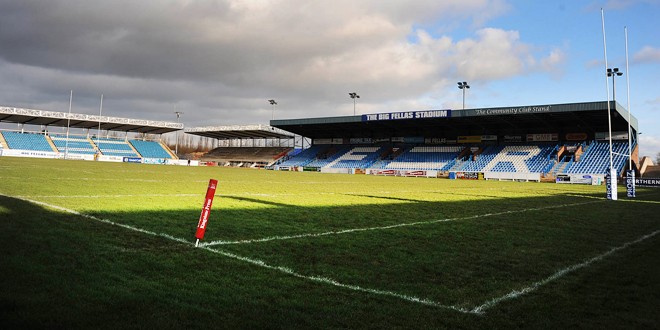 Talking grassroots Rugby League with Phil Hodgson
2013 hasn’t been a bad year for amateur Rugby League, even if it closed with torrid scenes on and off the pitch at the Big Fellas Stadium, Post Office Road, Featherstone.
The players of Stanningley and West Hull under 18s did themselves, their clubs and their sport a real disservice by the
Talking grassroots Rugby League with Phil Hodgson
2013 hasn’t been a bad year for amateur Rugby League, even if it closed with torrid scenes on and off the pitch at the Big Fellas Stadium, Post Office Road, Featherstone.
The players of Stanningley and West Hull under 18s did themselves, their clubs and their sport a real disservice by the A new year demands a new approach to the amateur game
 Talking grassroots Rugby League with Phil Hodgson
2013 hasn’t been a bad year for amateur Rugby League, even if it closed with torrid scenes on and off the pitch at the Big Fellas Stadium, Post Office Road, Featherstone.
The players of Stanningley and West Hull under 18s did themselves, their clubs and their sport a real disservice by the
Talking grassroots Rugby League with Phil Hodgson
2013 hasn’t been a bad year for amateur Rugby League, even if it closed with torrid scenes on and off the pitch at the Big Fellas Stadium, Post Office Road, Featherstone.
The players of Stanningley and West Hull under 18s did themselves, their clubs and their sport a real disservice by the 